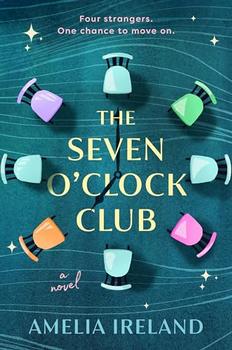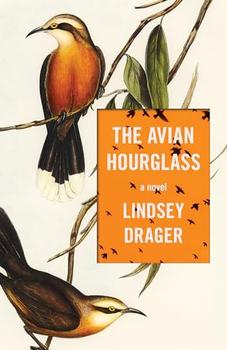Page 3 of 4
There are currently 24 member reviews
for The Seven O'Clock Club
-
Tracy B. (Pittsboro, NC)
The seven o'clock club
A cleverly written book. I was drawn into the lives of the 4 characters in the experiment. What was it about the group leader, it seemed that she wasn't sure of herself. The twist halfway through kept me even more curious. Maybe there are some other books that experiment with this subject, but I haven't read them. A throughly illustrated fascinating view of grieving. Expanded levels where one might find it.
-
Connie L. (Bartlesville, OK)
The Seven O'Clock Book Club
Well- written story of four strangers and their struggles.
The characters are well developed and interesting.
This is a pleasant read.
-
Gloria K. (Madison, WI)
The Seven O'Clock Club
As a retired psychologist and current hospice volunteer I was immediately drawn into The Seven O'Clock Club. During my career I facilitated numerous grief therapy sessions and was interested in learning about Genevieve's experimental approach. I agree with the recently published reviews in First Impressions regarding good character development and writing style. If you are considering reading this book I encourage you to do so. I think the unexpected twists in the plot which are revealed in the later half of the book will surprise you. It is my hope this compelling story will offer you hours of contemplation long after you have finished reading the book.
-
Marie W. (Prescott, AZ)
A Fantastic Tale
The characters in this story are English. Five strangers, four members of a group plus their leader, come together with the stated purpose of dealing with loss and grief. As they speak about their lives, they struggle with guilt, sadness, anger, love, etc., and new truths and connections come to light.
This book truly keeps the reader guessing. From the beginning, the author hints that there is more to her story than meets the eye.
There is some magical realism here, the kind that gave this reader something to fantasize about: what if all of this were real? (As a therapist who has led many bereavement groups, I'd like to ask the group leader some questions myself!)
Each chapter is narrated by one of the group members as he/she participates in the group. Thus we come to know and care about them as individuals.
I recommend this book for its creativity, humor, and warmth. I enjoyed it, and believe it would provide book groups with much material for a lively discussion!
-
Sharon J. (Raleigh, NC)
The Seven O'Clock Club
I really enjoyed the initial part of The Seven O'Clock Club where the story focused on four strangers who, working with a grief counselor, slowly and with heartfelt support of each other come to heal their own hearts. The characters were well developed as were the friendships and even a bit of romance. But I found the plot twist, which came toward the end and without any foreshadowing to be quite a leap. Maybe if hints had been woven in, beyond the introduction, I would have been able to make this leap. I do like how Ireland writes and will read another when available.
-
Helen B. (WINTHROP, ME)
The Seven O'Clock Club
Grief is the strongest of emotions; it can hold people back, but it can, under the right circumstances,help a person become a stronger, kinder human. Amelia Ireland's debut novel, The Seven O'Clock Club, explores what happens when four people, who can't seem to move on from their different tragic circumstances, are brought together in one therapy group. Ireland is deft with character creation. They are flawed, but you root for them, even in their worst moments. However, this is more than a story about the power of the human spirit or the usefulness of therapy, it gives a gift of hope, when near the end, truths are revealed and decisions are made. I was quickly turning the pages as I came to care deeply about each character. It does stall a bit in the last chapters, but it makes up for it in the epilogue. An excellent novel for those dealing with the challenge of letting go.
-
Holly B. (Phoenix, AZ)
Group Therapy with a Twist
How do others help us heal ourselves? The four strangers who meet weekly at seven o'clock have each suffered a loss they cannot heal on their own. Genevieve, their capable group facilitator, tries a new approach with them. Through rotating points of view, each member tells pieces of their stories as well as takes turns narrating their group sessions. The narration is heavy on the telling, lighter on the showing.
This storyline was a slow burn for me. I found the first 3/5ths a little uneventful. But reader patience pays off with the reveal of Genevieve's special strategy. The twist—that I did not see coming!—redeems the slow first half of the book and gives the last chapters new energy.




